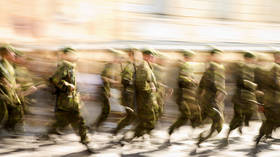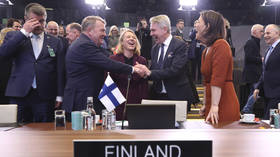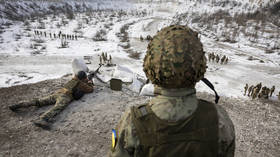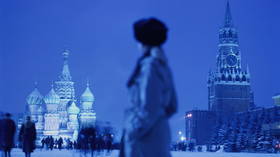Fyodor Lukyanov: Finland may come to regret joining NATO when everyone sobers up

So, Finland has officially become the 31st member of NATO. It was supposed to join the military bloc together with neighboring Sweden, but Stockholm has so far stumbled because of Turkish intransigence. It will join later, of course.
This enlargement is not the first (NATO has doubled in size since the Cold War), but it is significant.
The line of direct contact between Russia and the US-led bloc has now been doubled, due to the length of the Finnish-Russian border. But that is not the point. Sweden and Finland are examples of states that have adhered in principle to a line of neutrality or, to use the more common term of recent decades, non-participation in alliances.
The background was different, but the commitment to official dissociation from military blocs remained strong for decades (Finland) and even centuries (Sweden). The positioning of both countries was shaped by their relations with Russia and their understanding of the nature of their own security in this respect. To put it bluntly, if you live next door to a giant, it's best not to do anything that will upset him.
Swedish neutrality resulted from the disintegration of the great European powers in the early 19th century. In Finland, this status is linked to the outcome of the Second World War. The difficult relations between Finland and the Soviet Union in the 1930s and 1940s are well known, as is the outstanding ingenuity of Finland's leaders. They accepted a certain restriction in their freedom of action – neutrality in the military, and partly in the political, sense.
In return, Helsinki secured not only its sovereignty, but also the preservation of its market economy and democratic system. Not to mention special, and highly profitable, business relations with Moscow.
From the late 1940s to the early nineties, Soviet-Finnish relations were a model of fruitful compromise between states with different socio-political outlooks.
Although some threw jabs with the pejorative notion of ‘Finlandisation’ – the ceding of sovereign rights to a stronger neighbour – in practice the status quo was fine. The country remained part of the political West.
The dissolution of the USSR ended the period of special relations, which caused a deep economic crisis in Finland in the first half of the 1990s, but allowed the country to free itself from political restrictions. Helsinki stopped worrying about Moscow’s moods and joined the European Union. Russia itself sought to build special (even integrationist) relations with Western Europe, and Finland became a natural partner. The density of economic and humanitarian cooperation achieved in the second half of the 2010s served as a model for cross-border cooperation.
The idea of abandoning the policy of non-alignment has always been present in Finland, as has a public and political consensus that it was inadvisable. Indeed, for 30 years the idea of a new military confrontation in Europe was solely the preserve of the most indomitable ‘Cold Warriors,’ and even the enlargement of NATO was presented primarily in political and ideological, not military, terms.
The return of the reality of war has shaken all of Europe. In Sweden and Finland, the decision to abandon non-alignment and join NATO was taken immediately, and public opinion was turned on its head. Remarkably, there was almost no discussion of whether neutral status was a more reliable way of ensuring national security; membership of the military bloc was seen as the only option. Before that, non-participation had long been considered the most sensible approach. So, why the sudden change?
There are several reasons for this, but one is worth highlighting. There is a term known as ‘securitization’ – where a security dimension is given to everything: economic, cultural and even humanitarian processes. There is now a counter-experience, with the issue of classical security taking on a value-based form.
That is, belonging to a particular ideological and ethical group, and being openly opposed to others, is seen as a more effective way of protecting oneself than remaining aloof from confrontation. This is a psychological rather than a military-technical phenomenon.
Put simply, the desire for a sense of security (belonging to a powerful community) overrides the practical considerations of avoiding danger (the prospect of becoming a target or a battlefield).
This in itself is a result of the radicalization of values that took place in the West, as part of the wave of euphoria following the Cold War, when the “right side of history” prevailed.
Hence the rejection of neutrality and the need to take into consideration the concerns of the “wrong” side, on the basis that those who aren’t in the same moral and ethical boat can’t be trusted.
The current attitude to neutrality is the product of two simultaneous concepts: ’the long peace’ and ’the end of history.’ The first is because it has become obvious that delicate balances and safeguards are simply no longer relevant. The second is down to the belief that it’s clear whose side the historical truth is on (the West), so there is no need to flirt with representatives of the “doomed” opponent.
Both perspectives are already things of the past. A rethink is inevitable.
















